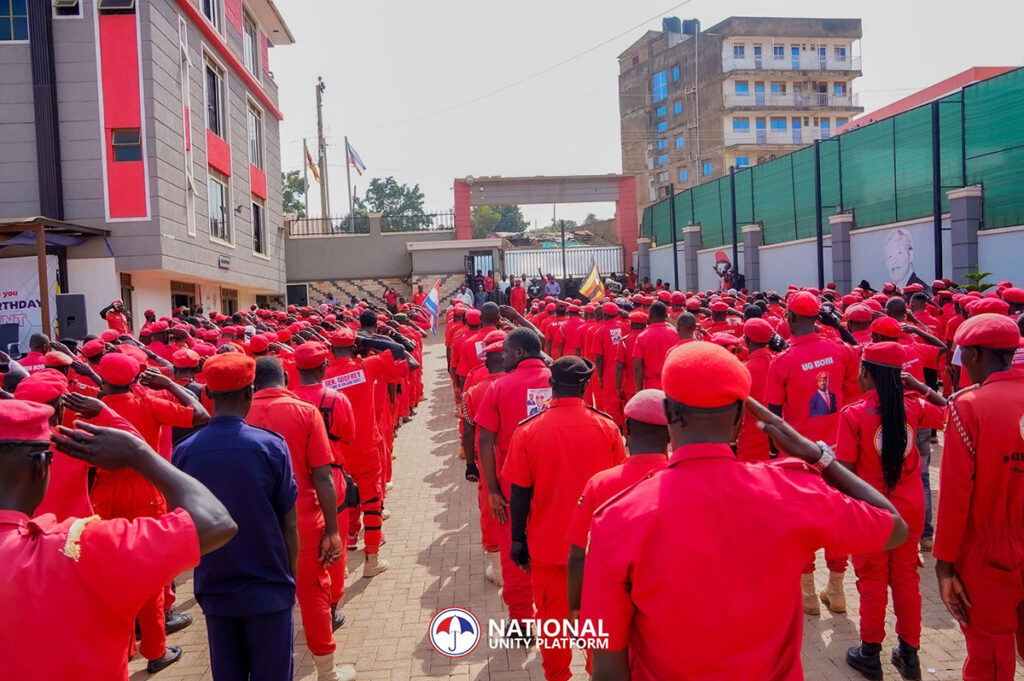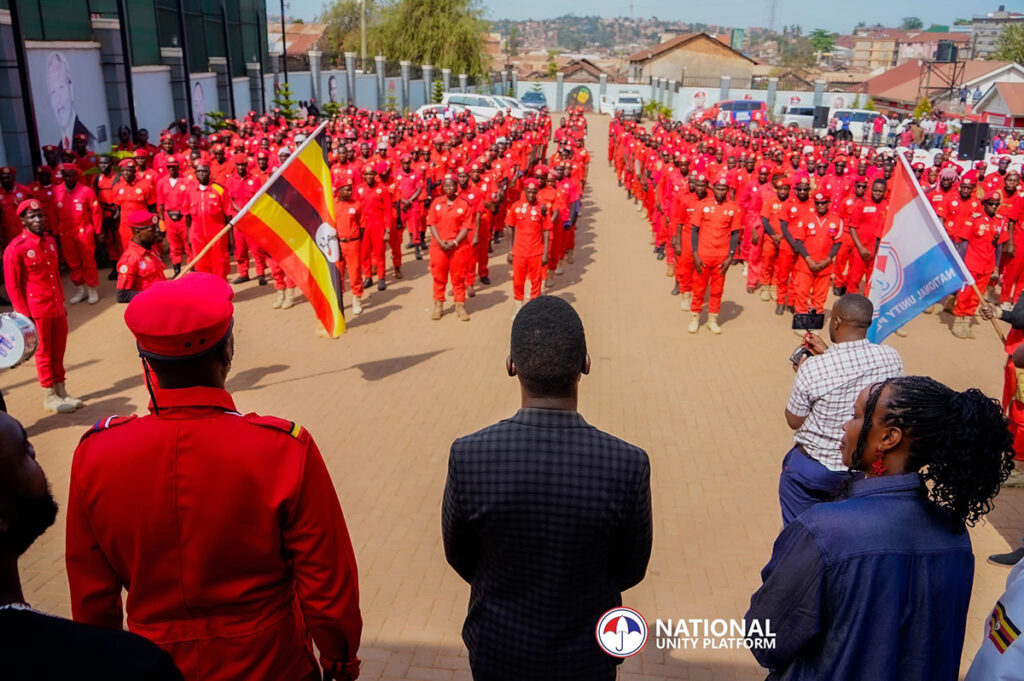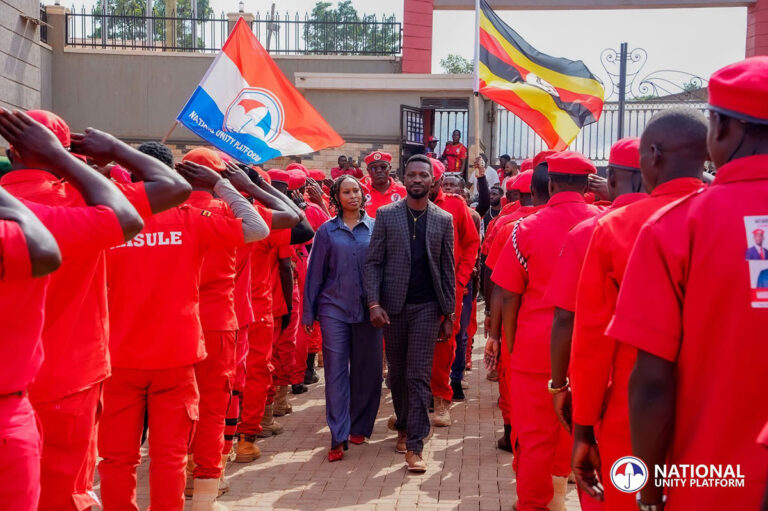Ugandan opposition leader Robert Kyagulanyi, widely known as Bobi Wine, has once again captured public attention after posting a tweet about a surprise event organized by his supporters, whom he referred to as “foot soldiers.”
The tweet, which expressed gratitude for the gesture, has sparked debate, particularly regarding the use of military-related terminology and symbolism in political activism.
The Tweet and Its Implications
Bobi Wine’s post read:
“After Nkozi on my way home, I was treated to an amazing surprise event by our comrades commonly known as foot soldiers from various districts of Uganda. These comrades, on their own volition, decided to celebrate the journey we have walked together today, and I am truly humbled by their gesture! God willing, this journey will end in victory. Aluta continua!”
While the message appears to be a simple acknowledgment of his supporters’ dedication, the phrase “foot soldiers” has raised concerns about the possible militarization of political activism.
In Uganda, military terminology in civilian politics is often scrutinized due to the country’s strict regulations on military conduct and symbols.
The Context of Military Salutes and Terminology in Uganda
Uganda’s military, the Uganda People’s Defence Forces (UPDF), operates under stringent laws that prohibit civilians from adopting military practices, insignias, or salutes.

The UPDF Act criminalizes the unlawful use of military uniforms, ranks, or gestures that could be interpreted as impersonation of military personnel.
Political activists who use military-style language or symbols risk being accused of violating these laws, potentially facing legal action.
In previous cases, opposition figures have been arrested for wearing red berets—once a signature symbol of Bobi Wine’s National Unity Platform (NUP) before being classified as military attire.
Potential Risks for Bobi Wine and His Supporters
While Bobi Wine’s use of the term “foot soldiers” may be metaphorical, it could provide grounds for authorities to claim that his movement is engaging in unauthorized paramilitary activity.
Given Uganda’s history of cracking down on opposition leaders, any perceived link between political activism and military imagery could lead to legal repercussions.
Additionally, if any of Bobi Wine’s supporters were seen performing a military-style salute or wearing attire resembling army uniforms, they could face charges under Uganda’s military laws.
Government Response and Public Reactions
As of now, Ugandan authorities have not issued an official statement on the matter.
However, political analysts suggest that this development could further escalate tensions between the government and the opposition.

Bobi Wine’s supporters, on the other hand, see this as another attempt to suppress political dissent, arguing that the government selectively applies military laws to silence opposition figures.
With Uganda’s political climate becoming increasingly tense ahead of the next elections, the debate over political symbolism and military imagery is likely to persist.
For Bobi Wine, whose movement thrives on grassroots mobilization, the challenge remains: how to rally supporters without providing authorities with justification for a crackdown.
Aluta continua, but at what cost?

